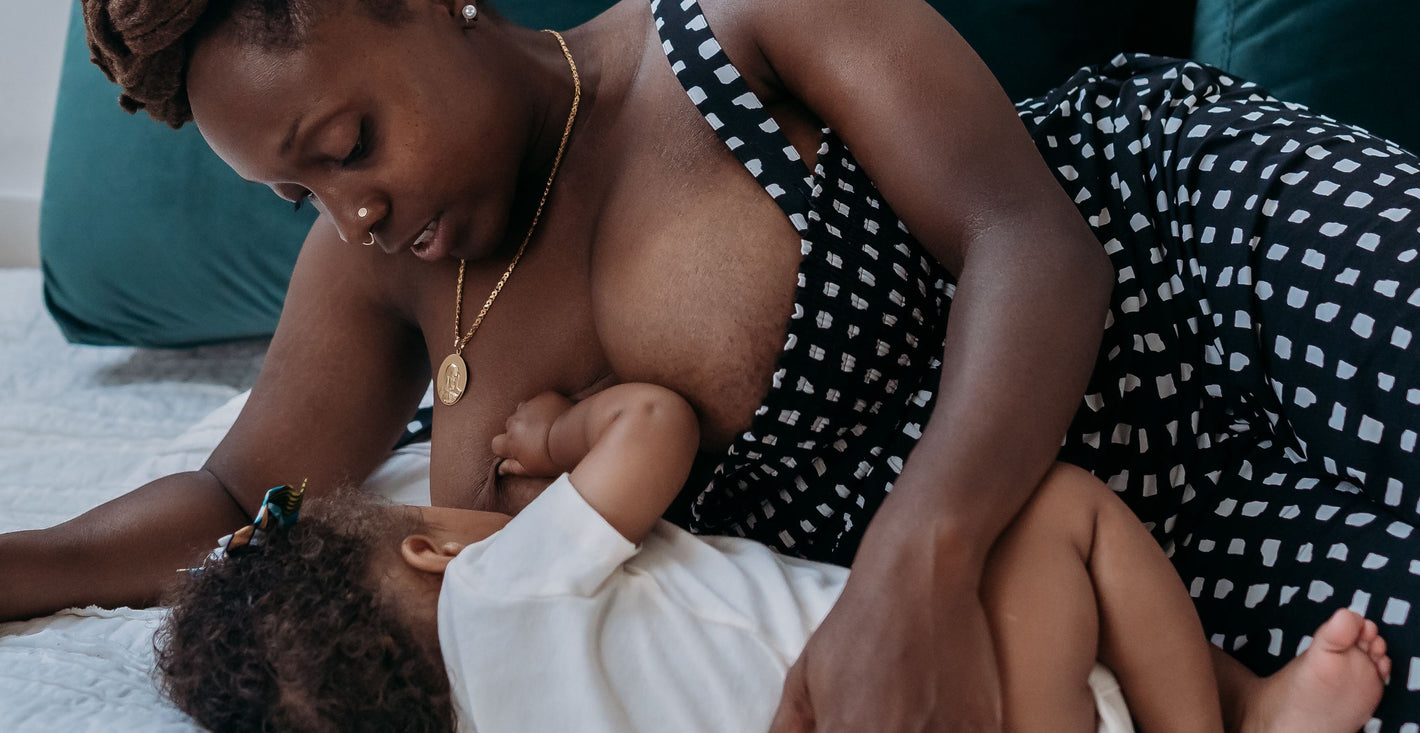Newborn Sleep Tips 101

By Natalie Fitzgerald, a Certified Pediatric Sleep Consultant and Postpartum Doula
After announcing my first pregnancy, I’ll never forget the seemingly never-ending comments people made about sleep: “How exciting! Get your sleep now!” and “Congratulations! You’ll never sleep again!” It’s something every new mama-to-be hears. But I knew a lot about babies and I knew they needed a lot of sleep: 18 hours a day (!), which I learned when I began researching the science and patterns behind newborn and young infant sleep.
Since then I’ve had two more little ones of my own, and worked with hundreds of newborns and young infants around the world. I’ve learned there are lots of ways to get babies to sleep, and no one method is the right one. Much of it depends on your parenting style and lifestyle, and your unique baby’s temperament, but I’ve compiled a few newborn sleep tips that without fail, seem to work time after time. Happy sleeping!
1. swaddle
Your baby is used to the confinement of the womb, and therefore your baby also likes the confinement of the swaddle; it provides comfort, security, and a feeling of closeness that they are used to. Many babies will fight the swaddle or cry when being wrapped up. Usually these are the babies that need to be swaddled the most! Wrap your babe in a tight swaddle then comfort her in your arms while rocking, swaying, or bouncing for a few minutes until she is calm.
2. feed
If you want your baby to sleep, you have to make sure your baby is fed. Food and sleep go hand-in-hand. Fill your baby’s tummy during the day, and try to offer full feedings instead of snacks so they can sustain a longer nap, and longer nighttime stretches as well. Since newborns can be VERY sleepy, try to feed your baby upon waking rather than before going down for a nap. This way, baby will have more energy to eat well.
3. Dark, Cool Room
Keep your baby’s room dark and cool. A dark room can block out stimulations and distractions that can make it harder for babies to fall and stay asleep. Darkness also increases melatonin production, which is a hormone that regulates sleep-wake cycles. Babies also need assistance regulating their body temperature as they cannot do it themselves, so keep your baby’s room cool especially since they are usually wrapped in an extra layer (swaddled) and body temps fall and rise as they sleep. 68-72 degrees is the recommended temperature for a baby’s room.
4. White Noise
White noise can be a really comforting sound for many babies! It’s similar to the sound they hear in the womb. Use a sound machine with a continuous white noise setting that will not only bring comfort to your baby but also block out the outside noise like toddler whining or dogs barking.
5. Routine
The more you can help your baby know what to expect around sleep, the easier it can be for them (and you!), and the less they tend to fight it. Babies thrive on routines and they learn through repetition, so the more consistent you can be with your routine, the faster they are likely to catch on, and the easier naps and bedtime can be down the road. Keep your routine simple, and make sure it is sustainable so that anyone who watches your baby can do it.
6. lay baby down awake
I know it can seem really crazy to lay your baby down awake; they seem so cozy in your arms! But I encourage you to try and lay your baby down before they are out cold in your arms or on your chest. They don’t know any different until you establish a certain way, so the sooner you can start to lay your baby down awake, the easier it can be for them to learn how to fall asleep on their own.
Natalie Fitzgerald is a Certified Pediatric Sleep Consultant and Postpartum Doula. Natalie’s approach to sleep training is tailored to each family she works with, meeting them exactly where they are and developing a customized plan to help them reach their sleep goals, based on their unique baby’s needs and their parenting style. Natalie walks alongside families during the time they need the most support, encouraging parents and helping them find a rhythm that works best with their baby and lifestyle. Natalie is also a member of the Postpartum Health Alliance, a non-profit dedicated to raising awareness about Postpartum Mood and Anxiety Disorders. She lives in San Diego with her little ones: Connor (7yrs), Kate (4yrs), and Makenna (1.5yrs).
You can follow Natalie or reach out to her with questions on Instagram.






